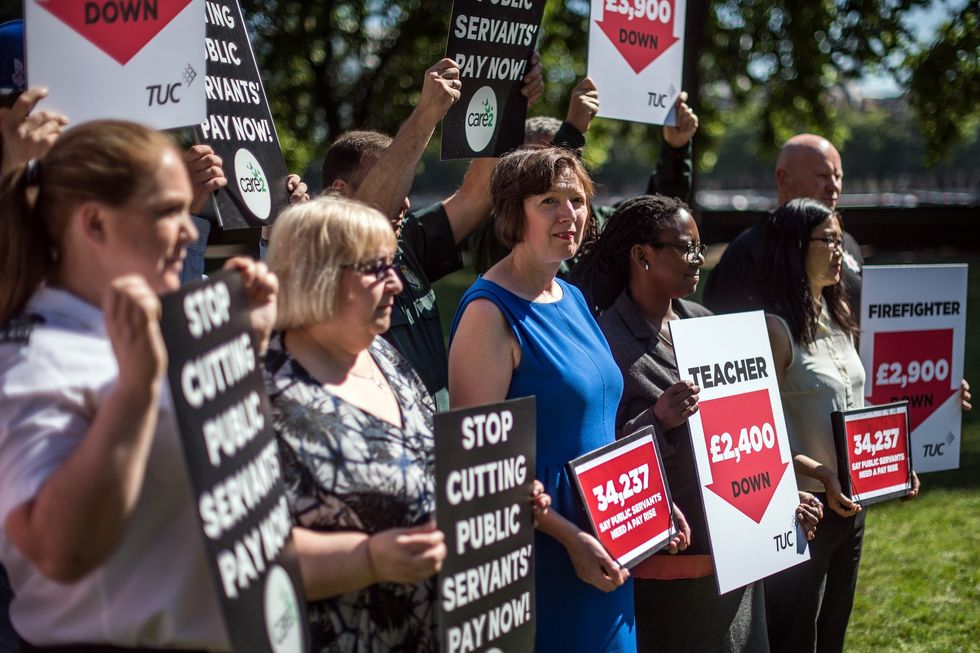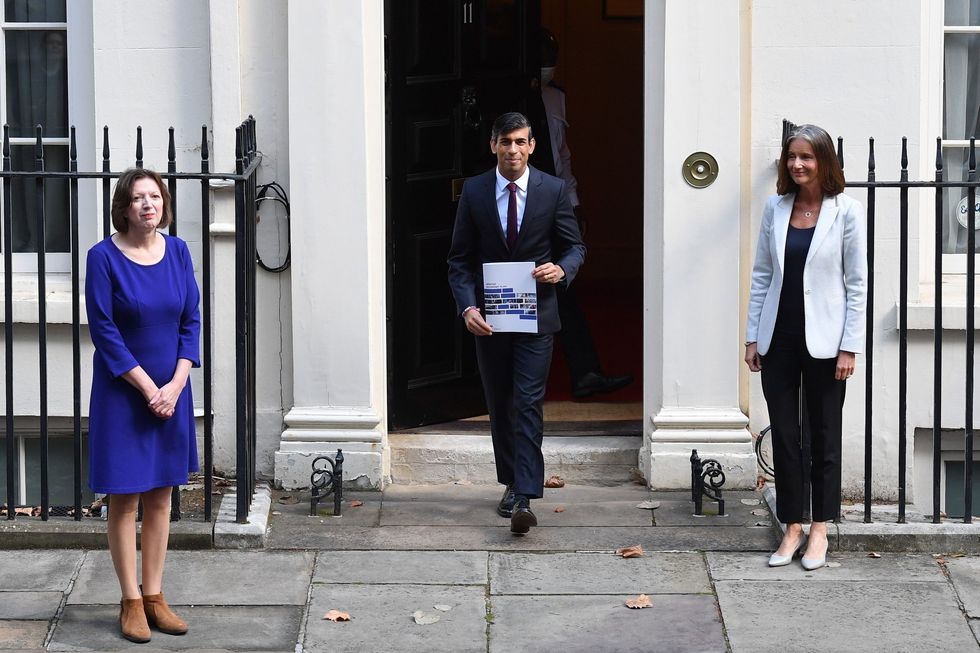TRADES Union Congress (TUC) leader Frances O’Grady has called for more Asian, black and minority ethnic workers to join the organisation as she said being part of a “union means you are much more likely to get fair and equal pay”.
In an exclusive and wide-ranging interview with Eastern Eye, the TUC boss also urged organisations to own up to their (racist) history even if they do not represent those values today.
She recalled how part of the Transport and General Workers Union’s (TGWU) membership once supported Conservative MP Enoch Powell whose infamous “rivers of blood” speech in 1968 strongly criticised mass immigration.
“There’s no point wagging fingers at anybody else, unless we lead by example,” she told Eastern Eye last week. “I want to be straight, and I want to be humble, because we have got work to do. But I think we are making progress; we are making change and I feel confident with it. We’re on the right road, and we’re going to get there.”
As well as striving for better diverse representation, O’Grady said the TUC wants to ensure all employees can reach senior positions if they want to. Everyone should have the chance to be taught leadership skills, she said.
O’Grady is not ignorant to the work needed within her own organisation, which she has led since 2013.
The TUC has a senior management team of seven – one of whom is BAME. A fifth (21 per cent) of the TUC’s policy officers and senior policy officers were BAME in 2020.
Efforts are being made in terms of recruitment, promotion, and development, O’Grady said, although she was honest the progress on diversity of representation
was “not far or fast enough”.
The feeling of inclusion is incredibly important to the organisation too, O’Grady added. “This movement belongs to all of us; it’s not somebody else’s club to join.”
Although the values of trade unions are “anti-racist”, O’Grady said by no means does that mean they are perfect. “We’ve got to recognise and face up to it.”
And although there are some ethnic minority leaders within unions (including Patrick Roach, general secretary of The Teachers’ Union and Ian Lawrence, general secretary of NAPO), O’Grady (who worked for the TGWU prior to the TUC) admitted it is not good enough.
“One of the issues is that our leaders are elected so I think we need to think about how we enrich our democracy because ultimately, it is members who decide. There’s more that we could do to support people to think they could go for (leadership positions).”

It is not only diversity in recruitment that needs to change too. O’Grady wants to ensure that unions are represented by membership too. The latest figures on trade union membership by ethnicity showed that 19.1 per cent are Asian British. The group is behind those of white (24 per cent), mixed (24.1) and black British (26.9 per cent) ethnicity.
On efforts to reach out to more Asians, O’Grady said it was partly down to emphasising the message of how beneficial unions are. Joining a union means you are much more likely to get fair and equal pay and have a better work life balance, she said.
However, a problem lies in some employees not realising they are eligible to join. “I’ve been asked questions like ‘I’m on a temporary contract, I don’t think I can join?’” and I say, ‘yes, of course you can,” said O’Grady, who has been an active trade unionist and campaigner all her working life. “(Being in a union) really does make a difference and the more of us who join, the better we can make working lives.”
The TUC recently joined forces with the Confederation of British Industry (CBI) and Equality and Human Rights Commission (EHRC) last month to issue a joint call for the government to introduce mandatory ethnicity pay gap reporting.
Along with CBI director general Tony Danker and EHRC chairwoman Baroness Kishwer Falkner, O’ Grady argued it would “transform our understanding of race inequality at work and most important, drive action to tackle it where we find it.”
The TUC has been transparent with their own race reporting. Their most recent statistics show there is a pay gap of 12.9 per cent between white and BAME staff pay. Although O’Grady acknowledged race pay gap reporting would not change the issue on its own, she believes it shines a light on the problem.
“It’s a blunt instrument, but it does expose the scale of the problem that needs to be addressed and it seems to us that that’s the first step,” she said. “The days of pay packets being secret should be over – we need to know who’s getting paid, how much and why. And when there are equality gaps, whether that’s on the grounds of ethnicity or gender, then the really crucial thing is let’s have an action plan to close it.”
So far, the government have not responded to the joint letter from the three organisations. But O’Grady hoped ministers will react positively to it. “We can’t just keep covering over the cracks,” she stressed. “We need to tackle race discrimination on equal opportunities at work.”
Throughout the pandemic, the TUC has campaigned for the rights of workers. They have championed the furlough scheme, petitioning on several occasions for the government to extend it.
As the scheme is phased out this week, O’Grady has already warned it should stay in place for as long as is necessary to protect jobs and business. They have also voiced their concern for the disproportionate impact of the virus on BAME workers.
Only last week, TUC data revealed ethnic minority workers are three times more likely than white workers to have lost working hours during the pandemic. But although Covid-19 has exposed further inequalities, O’Grady is keen to emphasise the disparities are not solely caused by the crisis. “The pandemic did not invent inequalities,” she said. “This is a long running problem.”

Although there have been numerous studies on the disparities throughout the pandemic (including work by TUC), O’Grady expressed her anger at any failure to act. It is vital to remember there are human beings behind the facts and figures who have continuously put their health and lives at risk to take care of others during the pandemic, she said.
“It’s no good going out on our doorsteps clapping unless we make sure those
workers are valued and respected for what they’ve done and what they continue to do for us,” said O’Grady, referring to the Clap for Carers movement during the first national lockdown last year.
O’Grady also shared her views on the controversial report by the Commission on Race and Ethnic Disparities (CRED) in March. The analysis, authored by Dr Tony Sewell, concluded the UK should be seen as a “model for other white-majority countries” and that institutional racism no longer exists.
When she first heard the conclusions of the report, O’Grady admitted her “heart sank”. Many critics, including O’Grady, accused the report of denying the reality of structural racism. “It felt like we were going backwards,” she said.
O’Grady is adamant that racism and discrimination is a reality for many ethnic minorities. People are still not being given equal opportunities and not being judged on their ability, she said. “It ends up dividing workers and we know our strength comes from uniting workers, whatever race, religion or class background we come from,” she explained. “Our best chance of getting a fair deal is by sticking together.”






 Apsana Begum
Apsana Begum










